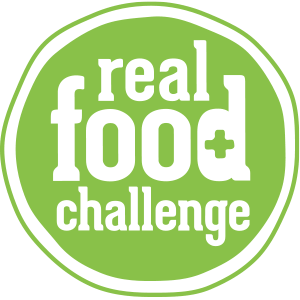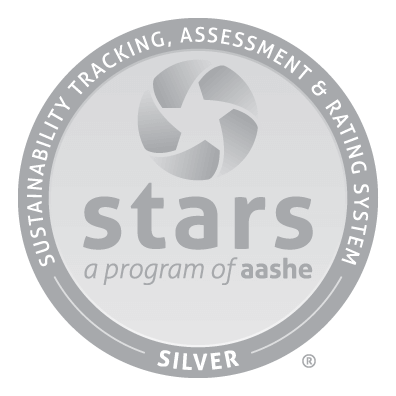Our Farm-to-Table Experience
Every meal is an education
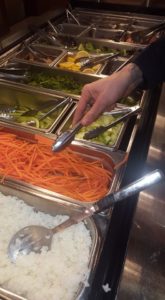 Our food is a student-centered experience
Our food is a student-centered experience
Antioch students own their education—and their dining experience.
Students can expect to be involved with Antioch Kitchens in varying hands-on and dynamic ways. From their direct contributions to menu ideas, eating meals together in Birch Kitchen or North Hall, or working in a paid position in the Kitchens or on the Antioch Farm, students are deeply involved in the food on campus.
A living laboratory, the Farm and Kitchens provide education through every meal, where our staff and students prepare “Ohio food” — including locally sourced in-season products and food grown on our own campus, 1,500 feet from our dining hall.
“We just seem to have a deeper understanding of the cyclical nature of things—being able to understand that we can’t separate ourselves from our consumption..”
— Ryn McCall ’21
Antioch students learn to understand the importance of knowing where their food comes from, and they have the extraordinary opportunity to participate in its production.
Students have options, from vegan to gluten-free
The Antioch Kitchens support a reasonable range of dietary preferences, respect the right of individuals to make choices for themselves from what is offered, and seek to minimize waste and maximize the use of ingredients grown on the Antioch Farm. Our chefs start meal planning with the food harvested from our Farm first in mind.
Our campus is a living laboratory for environmental sustainability
Our campus sustainability practices have earned us a STARS Silver rating from AASHE, which has also recognized our farm-to-table dining program and our grounds and maintenance practices as top performers internationally (ranking us among the top ten in AASHE-rated schools in the nation).
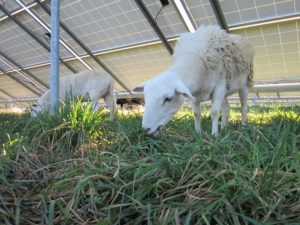 Our solar sheep graze under the solar array on the Farm where they’re protected from local dogs and coyotes.The land under the array isn’t ideal for farming, so sheep can graze in hard to reach places (cutting down on human labor and fossil fuel use for motorized mowers), and the sheep sink carbon and improve soil fertility under the array with their manure. Students help care for the sheep, and have even planted a sheep apothecary garden with medicinal herbs for the solar sheep’s optimal wellness.
Our solar sheep graze under the solar array on the Farm where they’re protected from local dogs and coyotes.The land under the array isn’t ideal for farming, so sheep can graze in hard to reach places (cutting down on human labor and fossil fuel use for motorized mowers), and the sheep sink carbon and improve soil fertility under the array with their manure. Students help care for the sheep, and have even planted a sheep apothecary garden with medicinal herbs for the solar sheep’s optimal wellness.
Part of what makes our College and educational experience unique among liberal arts colleges is that our campus, including our Farm, is a living laboratory. The Farm serves not only as a place to grow food for our community, but also as a tool for learning and finding better ways to live in harmony with the land.
Students in all disciplines can use the Farm for their coursework, and students from all disciplines can work on the Farm and learn about the practical aspects not only of sustainable, ecologically appropriate agriculture, but also the work involved in growing, harvesting, and preparing nourishing meals for their community. Our Farm and dining program educates students on food systems and food sources.
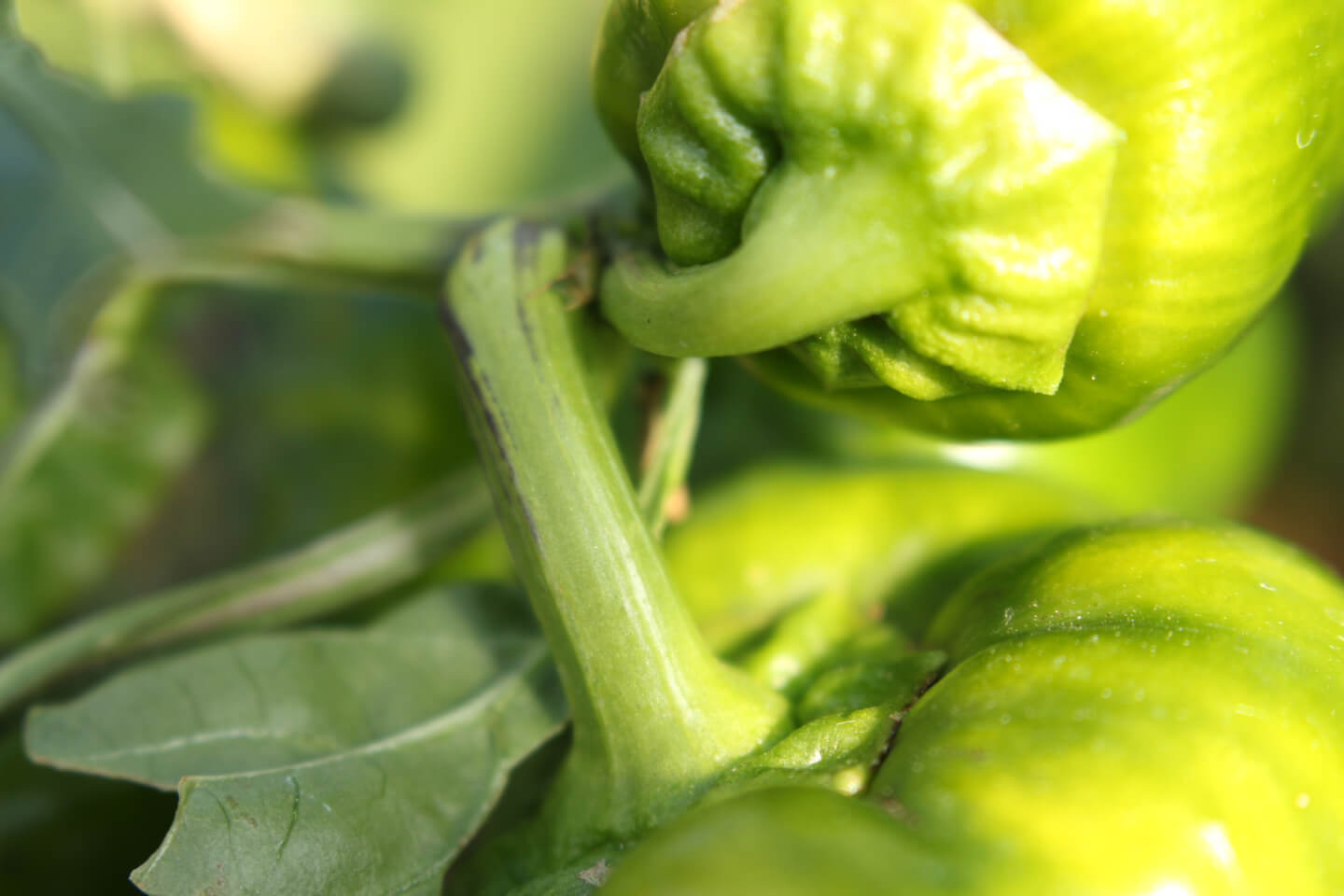
Having worked on both the Farm and in the Kitchens, it’s great to see how we’re striving to create more of a food community on campus by consuming and cooking great food produced on the Antioch Farm and including student labor and ideas in the process. This also helps raise awareness in our community about where our food comes from, how it is produced, the labor involved, and why all these factors matter.
Of all the food served at Antioch, 56% is real food as defined by the Real Food Challenge. This makes us the #2 higher education institution in the country for fair, humane, sustainable, ecological food.
Coffee is regionally roasted (in Columbus) and sourced from fair trade and organic shade-grown farms, co-ops, and single grower estates.
We participate in the multi-stream recycling program (campus-wide). We recycle cans, glass, cardboard, paper, and plastic containers.
We do a lot of our own baking and cook all of our meals from scratch.
We use local maple syrup and local milk.
There are no deep fryers in our kitchens.
We compost all the vegetable trim and coffee grounds we produce on-site. The farm picks up our waste buckets daily and maintains a composting system.
Students use reusable to-go containers in favor of disposable to-go containers. Reusable cups, plates, and flatware are used for regular service.
We have trayless meal service to cut down on wasted food.
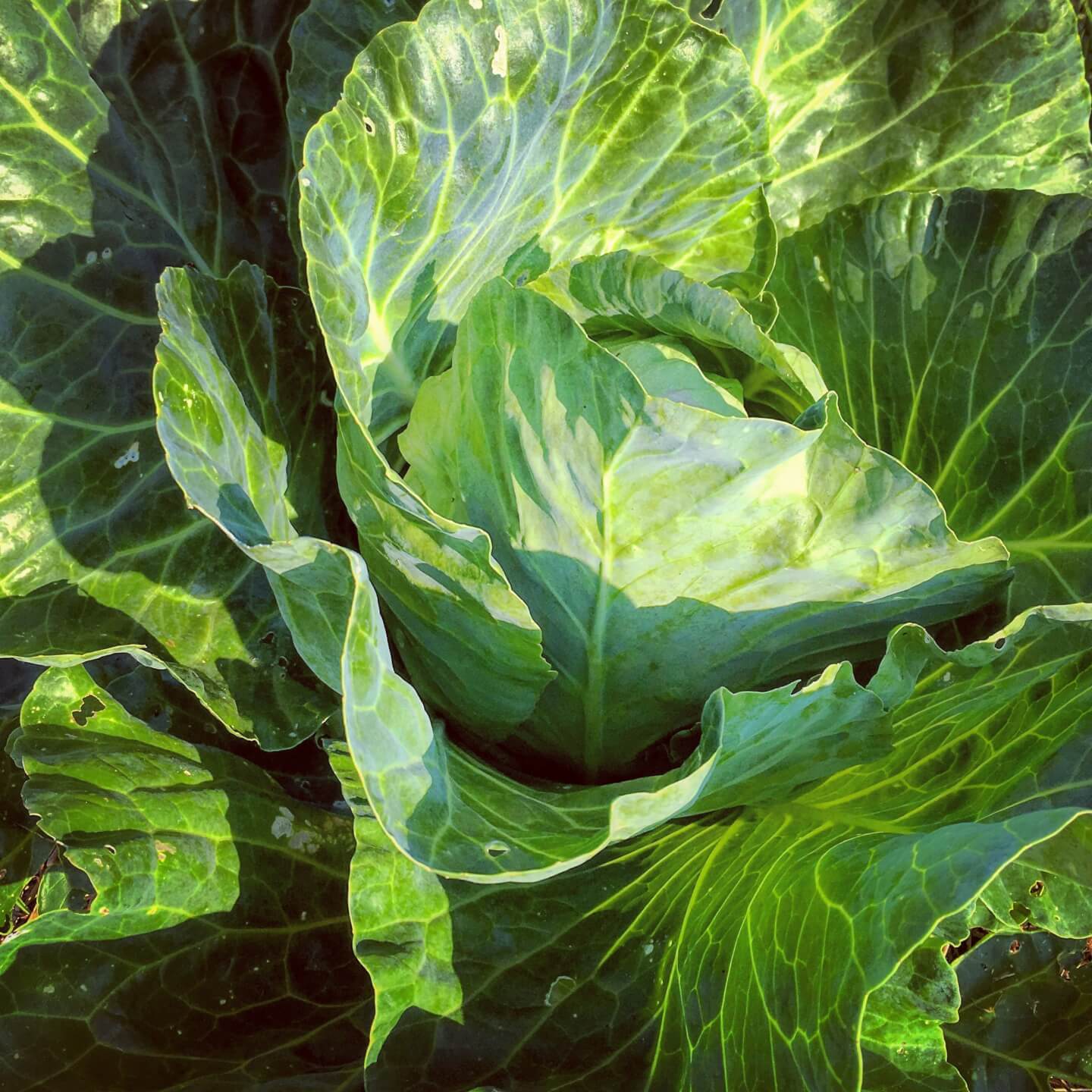
Our producers
We prioritize ethically and sustainably raised food, and organic products whenever possible.
The status quo is not an option
In response to the massive challenges facing our planet, we are proactively seeking better ways of living and learning by pursuing practices around environmental sustainability, deliberative democracy, social justice, wellbeing, and other essential areas of response.
When it comes to meal services, Antioch College is on the leading edge of higher education. Not satisfied to simply provide meals as an auxiliary service, our dining program is an opportunity to provide an integrative learning experience to students and our campus community through a proactive and pragmatic educational model seeking to expand knowledge and consciousness about dietary choices, food production and sources, and environmental impacts. Through educational work across disciplines, living and dining on campus, and employment opportunities, students are challenged by the immersive experience of encountering sustainable food systems in light of our growing climate crisis. In fact, Antioch College has been ahead of the curve in implementing practices identified recently by the United Nations Intergovernmental Panel on Climate Change (IPCC) report on land, climate change and agriculture.
At Antioch College, our farm-to-table dining program is an integral piece of how students own their education and learn experientially. They are both challenged and empowered to recognize their dietary choices, and to make their own informed decisions.
It’s clear that food at Antioch is made with care, and that makes it taste that much better. Of course food is a big part how comfortable anyone feels in a dorm, but it’s the people more than the food that stand out to me. The people at Antioch Kitchens are wonderful and really help make me feel comfortable and cared for when I’m at school.
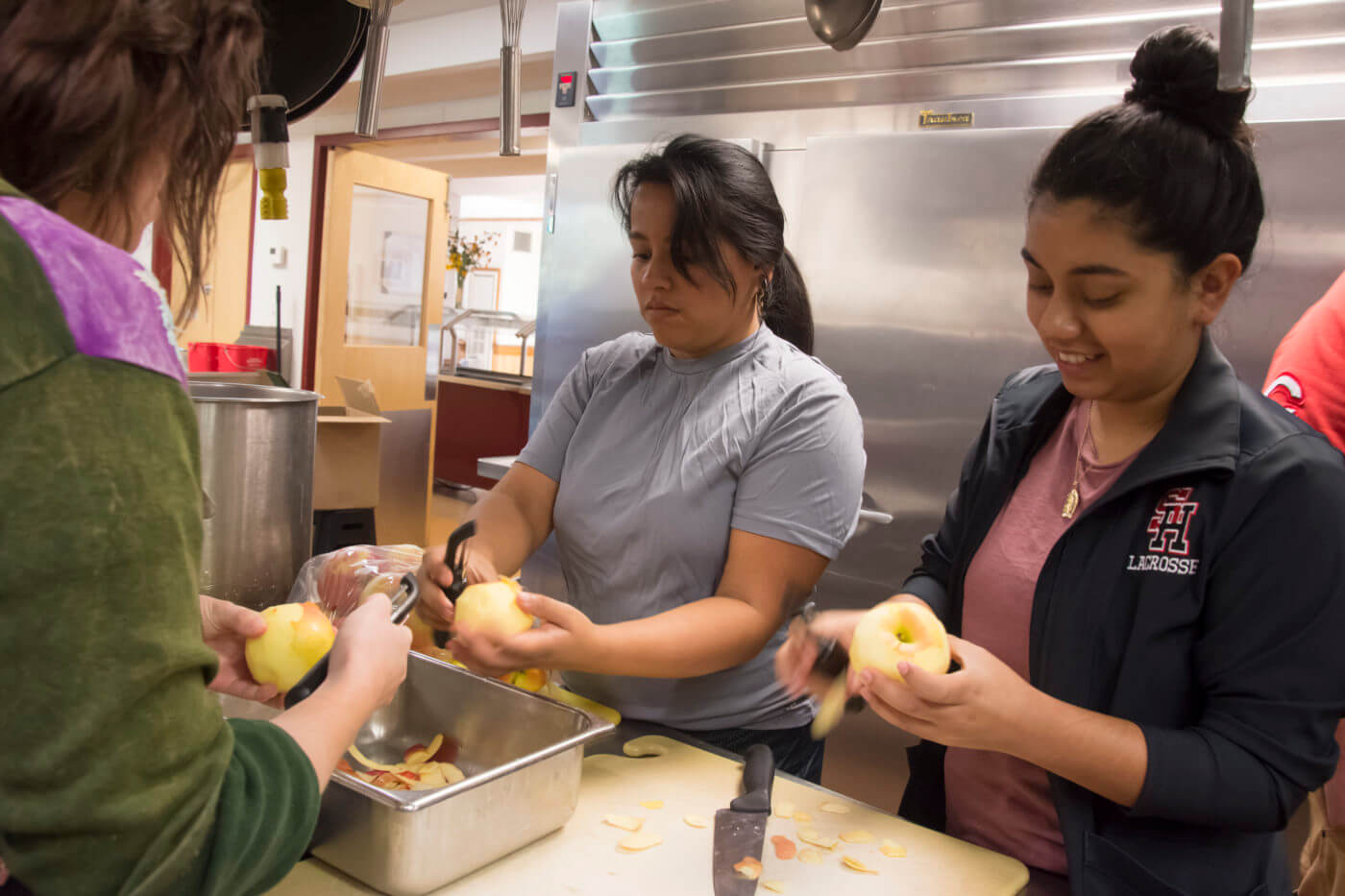
Error: No connected account.
Please go to the Instagram Feed settings page to connect an account.
We Practice Environmental Responsibility
Antioch College employs a set of five living and learning practices—including Environmental Sustainability—which intentionally shape our community in relationship to the world. Using these we learn to know, learn to make and do, learn to live and work together, and learn to balance the development of meaningful, healthy inner and outer lives.
These practices are not pat answers; they are constantly evolving as we test, learn, and lead through the work of our students, faculty, and community at large.
By practicing Environmental Sustainability, we seek to acquire and apply knowledge in service to the natural world, its ecosystems, and all their members.
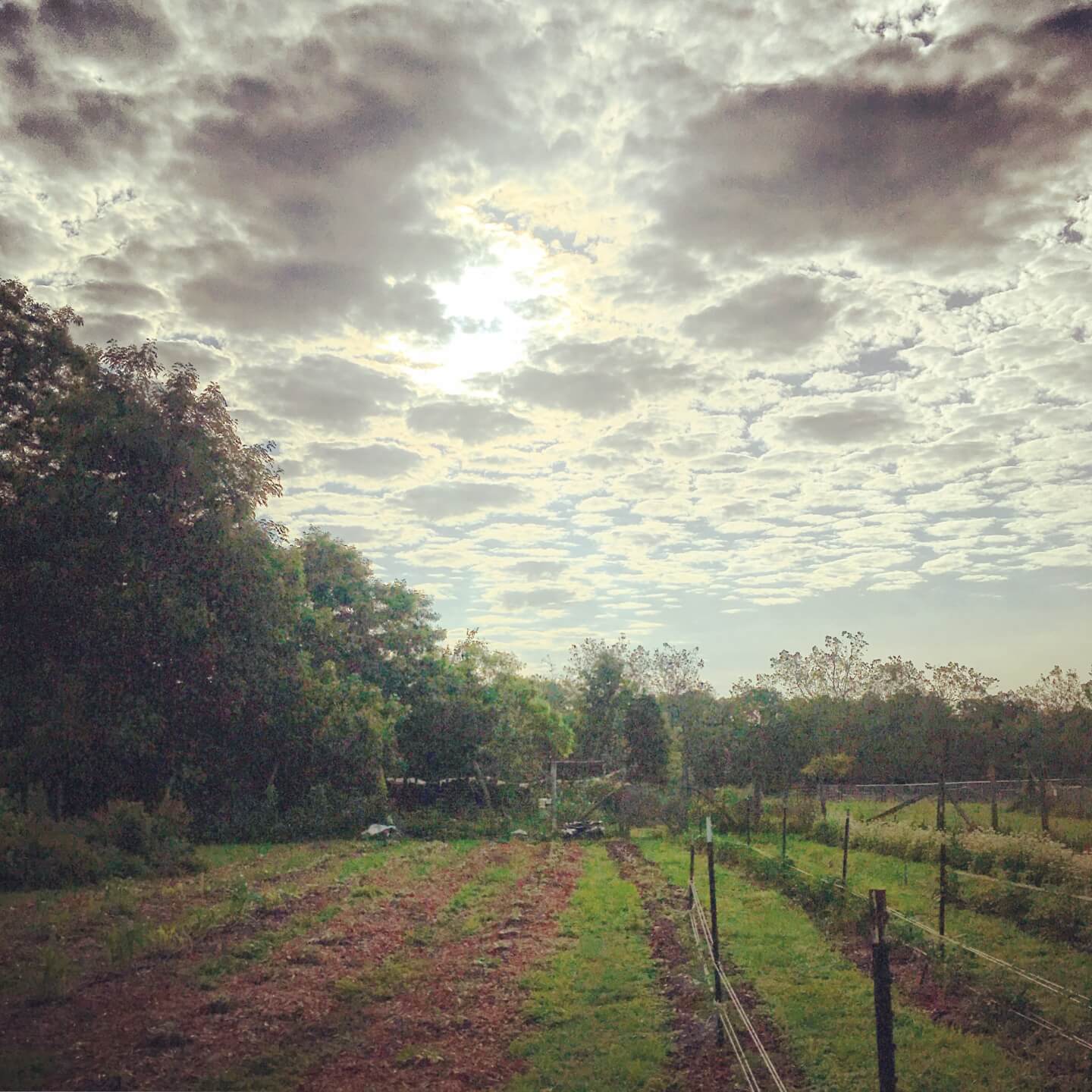
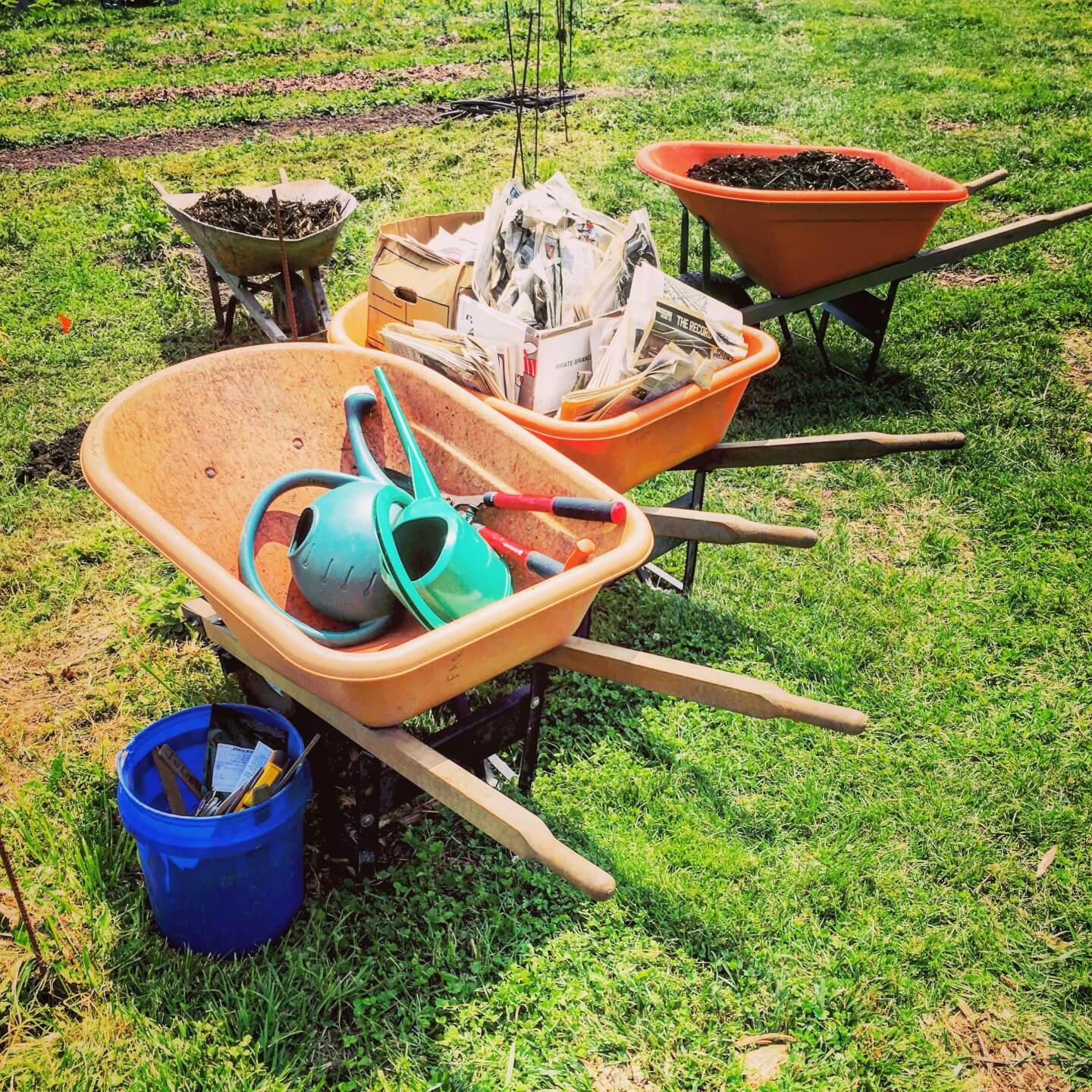
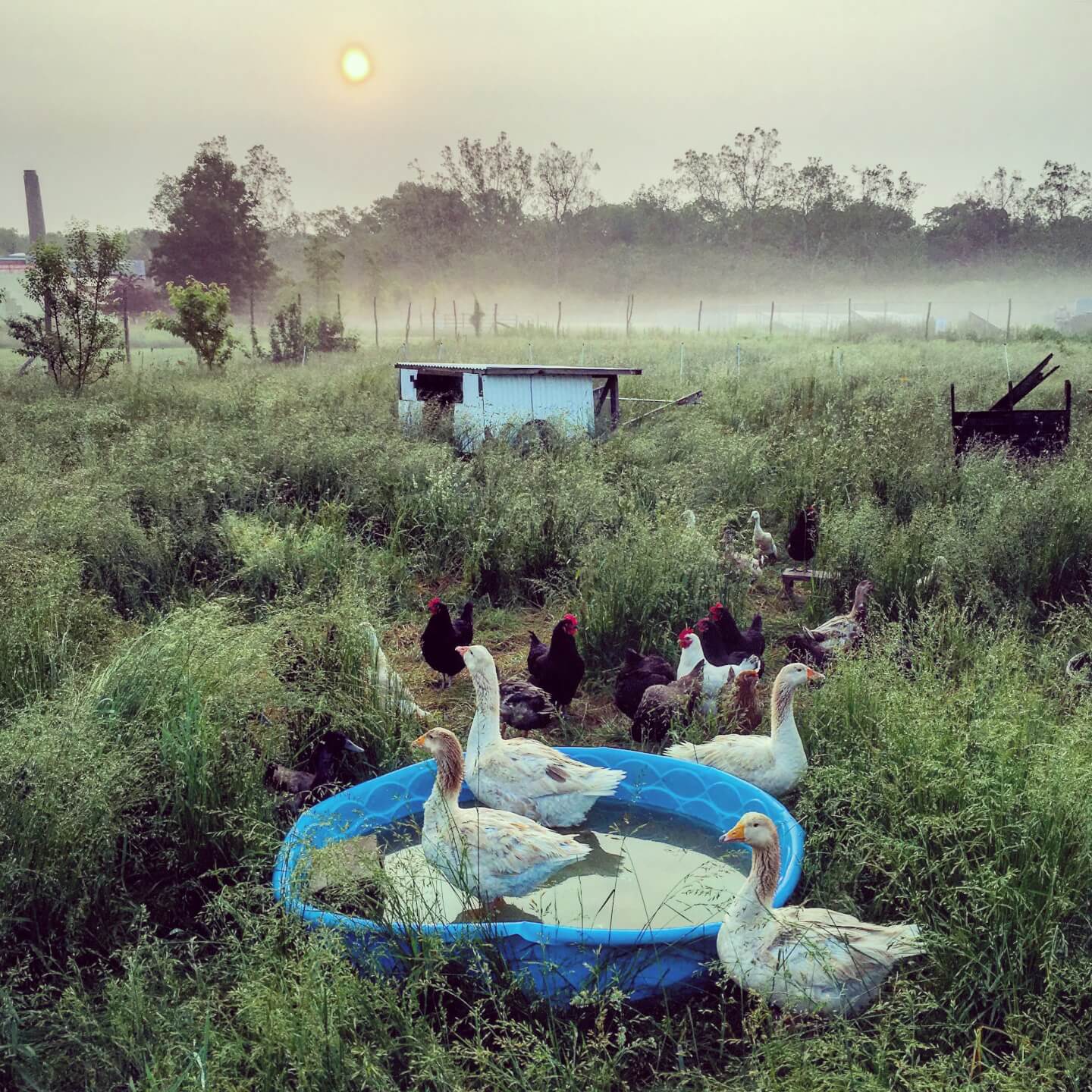
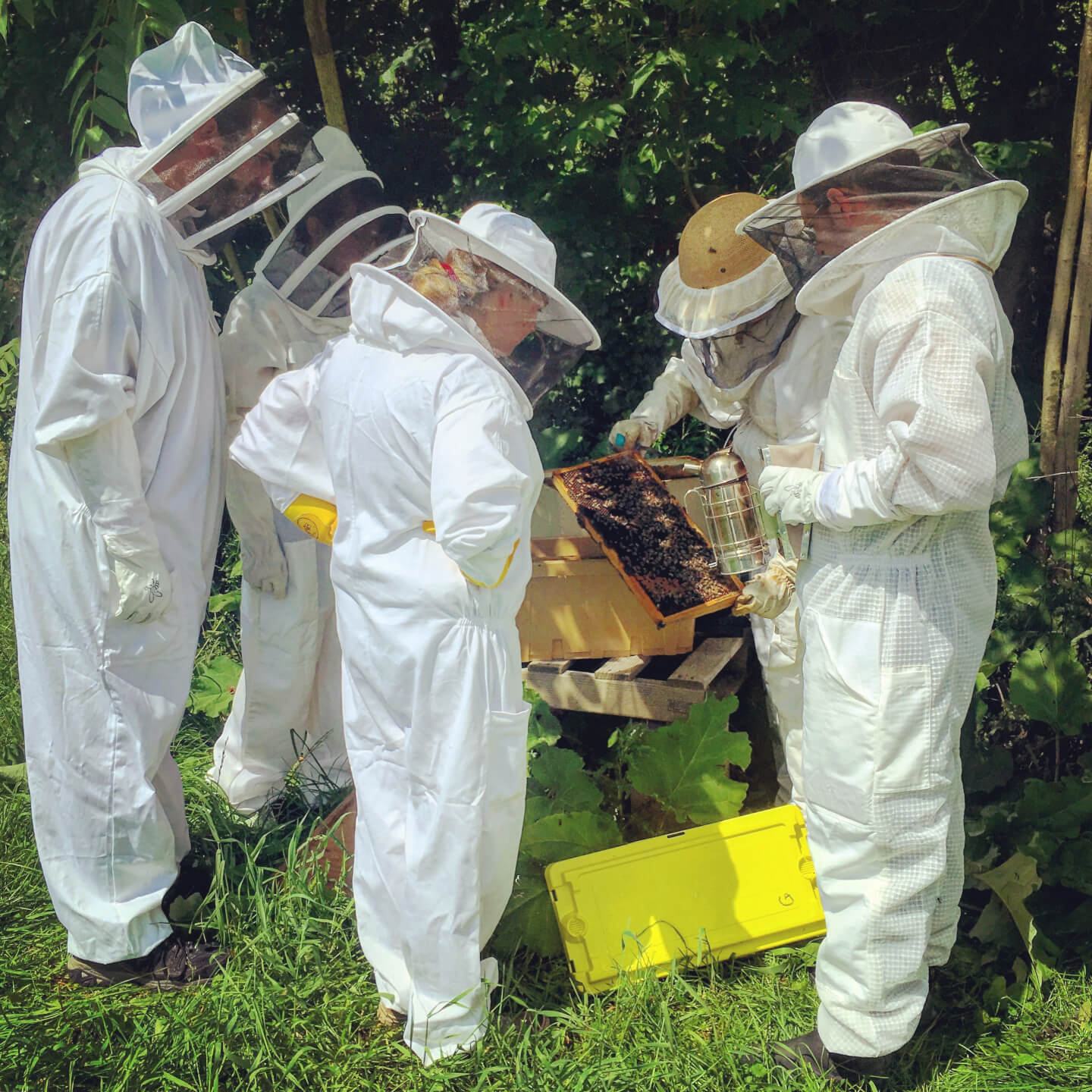
International Recognition
Our campus sustainability practices have earned us a STARS Silver rating from AASHE (The Association for the Advancement of Sustainability in Higher Education). We have also been recognized as an top performer internationally in the AASHE Campus Sustainability Index for our farm-to-table dining program and our grounds management practices (ranking us among the top ten in AASHE-rated schools).
Antioch College is a signatory and leader of the Real Food Challenge which aims to shift food away from industrial farms and unhealthy food and towards local and community-based, fair, ecologically sound, and humane food sources.
Antioch College is also recognized as a Sierra Club Cool School—ranked 5th for Food & Dining—earns an ‘A’ grade from the PETA Vegan Report Card, and is listed in The Princeton Review’s Guide to Green Green Colleges.

